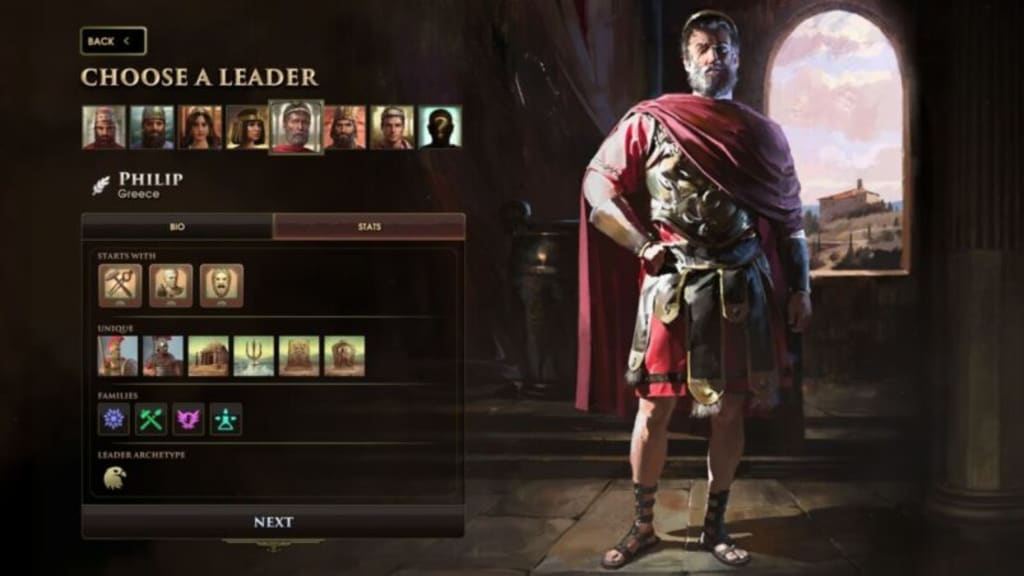Old World Review
In recent and upcoming 4X strategy games, developers are putting extra effort into innovating and pushing the sub-genre of strategy games forward

In recent and upcoming 4X strategy games, developers are putting extra effort into innovating and pushing the sub-genre of strategy games forward. Combining these games with other genres is one of the best ways to expand, as we have seen in XCOM and the upcoming Lemnis Gate. Is Mohawk Games' Old World going to be preserved or will it soon become a dusty artifact?
Old World, unlike other 4X strategy games which often cover millennia of history to capture the great experience of building an empire, is set in Iron Age Antiquity with a focus on the Mediterranean. This makes the game seem smaller, but it also allows for greater detail in city building and more unit options to support more varied armies.
The traditional 4X strategy will be followed by players. They will settle cities, develop settlements, construct improvements and wonders and recruit troops. The goal of the game is complete ten objectives or to achieve as many victory points as possible through cultural development.
This method of winning makes it easier to choose a path and gives the player more control. The game's current state allows for the player to modify or change things as needed. This is a refreshing change from Firaxis' Civilization-specific victory conditions, which tend to encourage a single path through a playthrough. Old World's victory system has the added benefit that it simulates the "messiness” of history, where civilization's development wasn't a predictable or planned affair.
Old World shines in its customizability and large number of multiplayer modes. The many turn styles available in multiplayer make it almost impossible to customize and try new things. This is especially notable and appreciated. If all of the customization options seem overwhelming, players can just load the default settings and play the pre-prepared scenarios or the continuously updated games of each week to get more of a puzzle-like challenge.
Each of the seven Old World civilizations -- Assyria Babylonia Carthage Egypt, Greece Persia and Rome -- feel unique enough with their own faction-specific units, starting technologies, and political families that they warrant at least a few playthroughs. There are some historical oddities and missed opportunities that can break immersion, which can dampen the game’s bold choice in setting.
A few units cards and models are not appropriate for the faction. The Greek Phalangite unit clearly uses Roman equipment. This makes it difficult to accept its historical premise. While Philip II of Macedon is a good choice for Greece's starting leader, it unfairly undervalues pre-Macedonian Iron Age Greece, which in turn reduces Greece's design potential.
The complete absence of a Celtic culture representative and instead having the Gauls, the only Celtic tribe, be a minor faction is a contentious decision. It is unimpressive, lazy, and more contentious. The decision to concentrate on the Mediterranean is uninspiring and a tired one. The game lacks Iron Age India or China, which limits the game's variety.
Old World's presentation is mixed, especially when it comes to visuals. Although it isn't ugly or terrible to look at, Old World feels dated. The graphical style feels like something out of Age of Wonders 3 and Civilization 5. Importantly, even though the map design looks more real than Firaxis' latest 4X offering, it is difficult to read due to the lack of model scaling options and muted colors. This can cause misclicks, eye strain and general irritation.
Audio design is more enjoyable with an appropriate ambient soundscape, effects and varied and thematic musical accompaniments. Old World does not have voice acting. However, the random events don't seem too dense and the writing style is pleasant. It's a bit odd that music is tied to players researching Drama technology. This makes the game sound dry and empty until they do. However, they can still manually go into in-game options and turn on tracks but it's too fiddly.
Old World's biggest problem is its accessibility. The game's poor tutorial and overstuffed UI make it feel more complicated than it is. 4X games are well-known for their many moving parts and synergizing system. Old World's poor tutorial (a series pop-up messages) will make it seem like the game is more complicated than it actually is. This will cause newcomers to spend more time trying to understand the game and less on strategic decision-making.
Although there is a nice system for cascading tooltips that makes it easy to find information throughout the game, it is not a good substitute for a structured and detailed tutorial. The large number of tooltips could as easily have been written in unreadable hieroglyphics without it.
The in-game encyclopedia doesn't do much as it is incomplete and has some missing or incorrect text. This gives the impression that developers have either focused on 4X veterans only or not spent enough time on user experience.
Although the UI is not terrible, it feels cramped. There are too many small icons and menu readability suffers as a result. The UI is functional and does its job well. However, players will find it frustrating when they least expect it. A good user experience helps players not only in the most obvious areas, but also in the less important ones.
Old World's gameplay is better than the rest, but some new 4X elements don't quite work. The best parts of the game are city development, combat, orders system, and order system. The game's unique mix of characters and random events adds an element of role-playing to empire management.
Old World's focus has meant that there is more time to give players access to greater variety of improvements within their borders. This means that they have more potential to experiment, city specialization and granular control. There is one design problem in city management: there is a discontent system or unhappiness system. But, there is no complete lack of happiness. The culture rating of the city seems to have incorporated happiness, or developers might have a biased view of historical city development.
Combat follows the Civilization series' lead. Only one military unit can occupy any hex. This means that when armies meet, wars could turn into sprawling affairs, or localized engagements with elite units, particularly in the latter stages of a session. It is engaging and compelling tactically due to the variety of units and the impact terrain has on combat. The AI isn’t bad at all, and will often use unexpected, sometimes aggressive or irrational maneuvers.
Old World's greatest success lies in the introduction and management of the orders system. This is a new resource mechanism that provides a new layer of command management. The orders system does not affect characters or units. It is a reflection on the political power, influence and bandwidth that faction leaders have in history.
The whole system encourages players to prioritize specific sectors of their empire and make difficult decisions when they are most needed. It is a great addition to the strategic decision making aspect of the game. The new Legitimacy rating is the key to order fulfillment. It denotes how successful and influential the leader is. However, it does not do much beyond giving him a title and passively improving family opinion.
Both technology and law systems can be serviced. However, the tech research mechanic feels somewhat padded due to a lack interesting technologies reflecting the period as well as the odd choice to make research semi-random. Although enacting laws is a good idea, the binary system with very little nuance is outdated and boring. This limits players' control over empire management.
Families, characters, and dynasty management all make a welcome appearance in Old World and form the narrative role-playing core of the game. Although these features are great conceptually, the implementation of the design is not perfect. Characters don't have much to do, political family members don't feel autonomous or semi-autonomous entities, and dynasty managing can be described as a child production mechanism to avoid defeat and gain bonuses (players lose if there are no heirs). Although these elements are supported by random narrative events, the overall game's ambition is not met.
The worst gameplay component by far is diplomacy, which is an utter garbled mess, made even worse by particularly poor UI design and the lack of a clear tutorial (I can't stress enough how vital of an issue this is). Although this is a good idea, the developers have made diplomacy more character-centric than state- or government-centric. However, since characters can't do much, it feels hollow and pointless.
Old World is a success from a performance perspective. The game's options menu is impressive for a game with such a small team. It would be hard to beat AAA games. Old World runs smoothly and doesn't require too much processing power due to its older graphics. Players with recommended specs should not have any problems running it. There were a few bugs that I encountered, like the unit action queues not responding or the menu buttons graying out, but nothing major. The save system was implemented in an unusual way, which may cause some players to be confused.
Old World is certainly an ambitious project from an equally ambitious studio. However, the game's failures don't live up to its lofty ambitions. Although most elements have been improved, new systems have been implemented, it is clear that there was more work to be done, particularly on the new character systems. The game's accessibility is a problem with a poor tutorial system. This could lead to it becoming a niche game like Civilization. Old World, while a solid recommendation for strategy enthusiasts and veterans of 4X sub-genres should be given a chance.





Comments
There are no comments for this story
Be the first to respond and start the conversation.